|
OBBI 180800Z 17007KT 130V210 CAVOK 25/12 Q1012 NOSIG In an era of untethered adventure one daredevil came to rise above the rest. To do the improbable, to achieve the unthinkable, was the life of Lt. Col. Ettore Muti of the [ Italian Air Corps - Corpo Aereo Italiano ]. Admired by rivals for his courage and worth. Notorious for his daring air raids. Famous for his love of risk and gamble on the daring. Ultimately known for being the man behind an unprecedented 4,000km air raid to attack Bahrain.  Benito Mussulini 1940 Defiant at a Speech.. Benito Mussulini 1940 Defiant at a Speech.. The Stage 1940, criticized as weak, and barely able to control its African interests, the Kingdom of Italy had to show it’s might to the world. WWII was in the Mediterranean, and the African front was all but lost. With fascist Prime Minister Benito Mussolini at the helm, the people of Italy looked to him for redemption. Gathering the best of Italy’s Generals, Mussolini orders aggressive raids to sustain the nation’s honor, while instilling uncertainty and fear in the enemy’s mind. Points all over the Mediterranean and the Red Sea were targeted, including Sudan, Egypt, Malta, and British Gibraltar. New to aviation, Lt. Col. Muti was famed within the Italian ranks for his record of successful and courageous missions. A destructive efficiency in the Second Italo-Ethiopian War | 160 bombing raids in the Spanish War | Merited and decorated for his actions in the Battle for England, and a profoundly enviable record for a person who has only been flying for 5 years. Directed by "Il Duce", and Commissioned with a squad of bombers in Rhodes, Muti develops the most ambitious of plans. 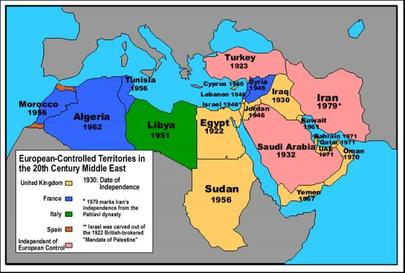 Map of WWII Influence on Arabia & Year of Independence Map of WWII Influence on Arabia & Year of Independence Marred and distracted by the increasing presence of the British Hurricanes and French D.520s. Lt. Col. Muti conjurers a ridiculous plan to raid the Arabian Oil fields in the Gulf. Ignoring the fact that England and France controlled a majority of the space around the area [ Cyprus, Egypt, Lebanon, Syria, Iraq, Kuwait, Saudi Arabia ]. Not to forget, the vast uncharted distance, and lack of military support or reach. Muti argued that attacking the Oil Fields would limit the supply of fuel to the Mediterranean, and compel the British to spread their forces. In turn, reducing presence in the Mediterranean, allowing Italy better control in the area. The plan was too ambitious to say the least. The distance proposed was never covered before, with unheard of weight loads. The best Aircraft of the time struggling with 19,000kg, Muti overloads his bombers with over 21,000kg. Needless to say, the Generals doubted Muti’s sanity. Fortunately, with an impeccable record of daring achievements, Muti had the backing of “Il Duce” himself. Ordering the plan into action with confidence, famously stating “se Muti pensano di potercela fare, lasciateli fare” | “if Muti thinks he can do it, then let him do it” – Benito Mussolini. 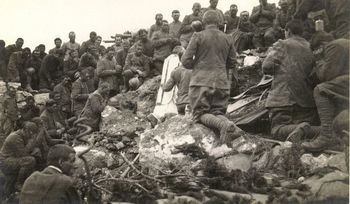 Italian Soldiers Praying on Mount Ortigara 1917 Italian Soldiers Praying on Mount Ortigara 1917 The Man Ettore built a name for courage and furious determination. Inflamed with the thoughts of patriotism, backed by romantic nostalgia and ideals of the Italian [ Il Risorgimento - Revival ]. Disappointed with the socio-political status quo in the Italian Kingdom, he struggled to conform to an average life. Barely 14, Ettore runs away from home and volunteers to be an infantry soldier, only to be returned home for his age. Later in 1917 he tries again and gets through to join the Royal Italian Army, as part of the 6th infantry regiment. He continuously manages to survive the worst of battles. Being one of 23 survivors out of 800 lives wasted, attempting a frontal charge against a line of Austro-Hungarian Machine guns. After the war, he chased the first chance of battle he can find, volunteering for the Invasion of Yugoslavia. His efforts were short-lived, as he was frustratingly ordered by his government to return. Out of resentment, he joins the National Fascist Party, an opening step towards his name in history. 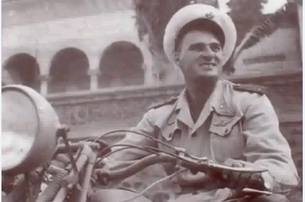 Ettore Muti on his Beloved Harley-Davidson Bike Ettore Muti on his Beloved Harley-Davidson Bike He was quick to rise within the ranks, excellent leadership traits, and a keen mind to organize and attack. As a contribution towards the March on Rome, he was famed for the seizure of his city of birth Ravenna, Italy in 1922. An achievement that placed him in high regards within the Fascist party. Always know for his daring lifestyle, he continues to push limits with his life, volunteering for the worst of missions and assignments. Even in his personal life, he was known for his risky hobbies. This was a man that loved to show off his scars from political assassination attempts to almost dying in a motorcycle race, and of course the battles he’s survived. Famously always bare-chested when able, Ettore was becoming a legend, instantly gaining the admiration of his peers.
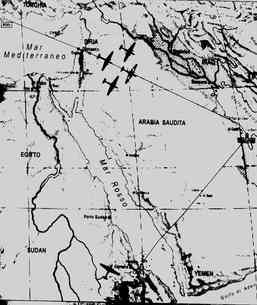 Ettore's Plan of Attack Ettore's Plan of Attack The Plan Building on his short but audacious experience, Muti spends two months planning the world’s first 15hr air raid, spanning a distance of over 4,000 km. Utilizing four [ Savoia-Marchetti SM.82 ] modified for better lift, and longer range, and the fifth one for support in case of an emergency. He took the council of his trusted Capt. Paolo Moci, and finalized routes and set targets. The timing had to be just right, with favorable tailwind to allow them the range; a difference in 10kts would render the plan useless. The speed had to be such, to not waste fuel. The attack was to be an uncontrolled or autonomous run, deep in enemy territories. Therefore all pilots had to be familiar and knowledgeable for the 15hrs of radio silence. They even factored a full moon to aid them in the raid. Being Ramadan, that would have made it around the 15th or 16th just in time for [ Girgaon – قرقاعون ]. The second part was a Propaganda campaign, to boost Italian confidence, and shake the enemy's will. The plan was to overload aircraft with 3000 ltr of extra fuel, and a cache of 15kg, 20kg, and 25kg bombs, the least carrying 150 units. A strip down of all unnecessary equipment including defensive guns. Engines were modified for extra power and reduced weight, even manned positions such as engineering station were removed to save weight and space. The plan was to fly from Rhodes to Bahrain, then land in Italian controlled Eritrea. Avoiding backtracking through Iraq and Syria, or running into the British RAF and French Air Force. 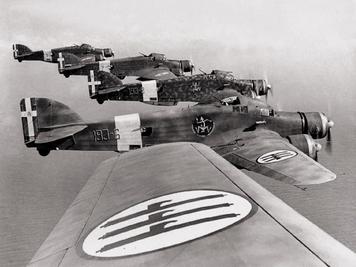 Italian Savoia-Marchetti in Formation Italian Savoia-Marchetti in Formation The Raid With the dimming afternoon, the raiders took to the sky on the 18th of October 1940. Overloaded with fuel and bombs, the four Italian built SM.82s, rush down the runway. Even with three modified 950hp Alfa-Romeo 128 engines roaring, the raiding fleet struggles to lift, only inching in their climb to 7,000ft. With two dimly lit Diamond decals on top of his wings, Muti leads his fleet towards a fate unknown. Passing Cyprus before dusk, then navigating the mountains of Lebanon and Syria in complete darkness. With Damascus being the last point of visual reference, before reaching the Gulf. Followed by a major challenge to traversing the mainly uncharted Arabian Desert. With only his vulnerable companions next to him, Etorri flew in silence. While over the desert they constantly change altitude to hide above the clouds. A minor issue arose when one of the aircraft lost visual contact while entering the desert, but Ettore had anticipated this situation and was confident in his plan. By 1 am they reach [ Dohat Azuwar | دوحة الزوار ] close to today’s southern Kuwaiti region of [ AlWafra - الوفرة ]. With a bomber's moon, the raiders prep for the attack. A hazy sky forces them to decent to 3,000ft. Maintaining constant visual contact with the ground, and searching to identify their next waypoint of [ Al Qatif – Saudi Arabia | القطيف - السعودية ]. 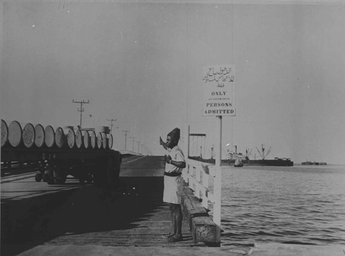 Bahrain Mina Salman Sea Port 1940 Bahrain Mina Salman Sea Port 1940 At 2:00 am Bahrain Time, Muti and his crew see the bright lights of Bahrain. Lit up like a beacon, Manama and Muharraq were easy to identify. Within 20 min, the fleet was over the Island. Unsuspecting and completely caught off guard, the RAF further aided the raiders by lighting up the runway when their engines were heard. Only shutting them off once bombing started. They targeted and hit the obvious RAF Muharraq Airfield part of today's OBBI, The Royal Navy HMS Jufair Naval Base [ Mina Salman - ميناء سلمان ], and the distant flames of the Oil Refineries in the Sakhir Desert. Dropping 150 bombs out of each of the three planes [Totaling Approx 9,000kg], they turn towards Saudi and continue their trip. With the bright flashes of bombs exploding, the fourth trailing bomber identifies it’s position and heads straight to [ Dahran – Saudi Arabia | الظهران - السعودية ]. Attacking secondary targets, of Aramco refineries and oil wells, and finally rejoining the fleet. 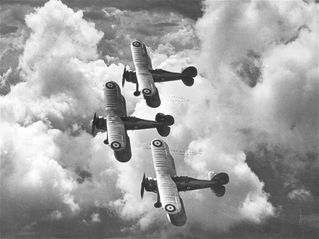 Gloster Gladiators in Formation Gloster Gladiators in Formation With the weather clearing up, and the winds calm. Muti and his crew fly the rest of the night towards the Red Sea. Maintaining a constant speed and altitude to economize fuel consumption. Just past [ Layla – Saudi Arabia | ليلى – السعودية ], they see the Mountain chains of the [Aseer - Saudi Arabia | عسير السعودية ] west of the Arabian Peninsula; beyond is the Red Sea and salvation. Halfway over the Red Sea, they get word that a retaliatory attack by the RAF on [ Massawa - Eritrea | ምጽዋዕ ] was underway. They were advised to keep their distance, avoiding the shoreline and avoid being spotted by the aggressive RAF raiding fleet of [ Gloster Gladiators ]. Safely avoiding detection, they reach their planned destination of [ Zula - Eritrea | ዙላ ] around 9 am, surprisingly with a reported 30-40min of additional fuel. Received as Heroes, the fleet arrives victorious, and triumphant on more fronts than expected. 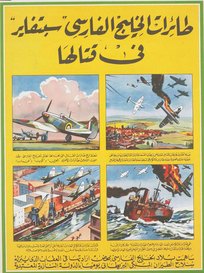 Arabic RAF Poster Reads: Persian Gulf Spitfire Aircraft in Combat Arabic RAF Poster Reads: Persian Gulf Spitfire Aircraft in Combat The Aftermath Quick to the airwaves, the British report minor damages, and no casualties to the daring raid. Only to be overshadowed by the story of how four bombers managed to make it all the way to the Gulf, without any resistance or being detected? Allied Europe stood astonished to the facts, flaring false reports of mid-sea submarine refueling, and technological advances in Italian Aviation; with Italy boastfully adding to the rumors. Italy played the on propaganda with perfect precision, stirring the area with ideas of doubt to the competence of the British and French forces. Baghdad boiled with unrest, calling for the ousting of the British, arguing the return of peace and security to the area. Similar decent was evident in Kuwait, Bahrain, Egypt, and Lebanon. Forcing the British to dedicate an intensive patrolling force to the region to please the masses. Another aspect that Mussolini played on, was the greed of Europe to the resources of Arabia. Like a Tuscan love song, the Italian propaganda machine captivated the region.
Socially the region shaken by the unexpected attack, most expatriates started sending their families back home. The numbers were so large that “Controlling Authorities” decided to do it as quietly as possible, to avoid causing panic or show distress. 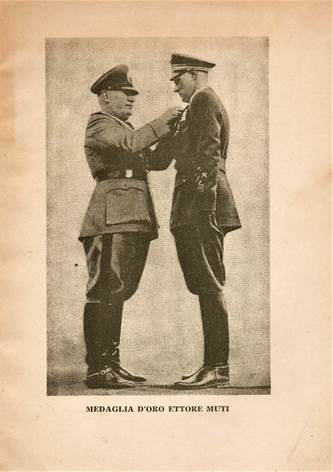 il Duce Decorating Muti with Honor Medal of Hero il Duce Decorating Muti with Honor Medal of Hero Italy on the other hand gained a new hero in Lt. Col. Muti. Words of admiration and respect were written by both sides, with praises directed to “Green Eyed Jim”. Italy succeeded in reducing enemy fighters in the area and continued to effectively bombard the Mediterranean. In fact, on the way back to Italy, Muti and his crew coordinate a spiteful attack on Port Sudan, as a consolation prize. Back in Italy, Lt. Col. Muti and his men are received with honor and praise. Roma decorates them with the highest honors for their achievements, songs were made, Plazas were named, and the people were proud. Muti continued his daring raids, hitting targets in Palestine, Sudan, France, Malta, and even joining The Battle of England. Ever so hungry for adventure, Lt. Col. Muti leaves the sky, and enters a very odd world of politics. For a while, he stood strong with the National Fascist Party, only to leave abruptly to become a Spy for the Italian Military Intelligence Agency?! Sadly, his life was ended short, after the fall of Mussolini and the disbandment of the NFP. Muti ended up being shot in the back by a local patrol squad called the Carabinieri. Supporting Information & Links::
An Italian Website Dedicated to the Memory of Ettore Muti Qatar Digital Library with Maps and Scanned Documents to the Bombardment of Bahrain Qatar Digital Library Aircraft Purchase & Damage Reports A Song Made in the Honor of Muti and His Crew A Web Memorial to the Tragic Death of Ettore Muti A Good Blog for Regional History A Book with Historical Account of the Time "The Axis of Air Forces"
1 Comment
|
38AB
The Aviator.. Flight Recorder
May 2019
Departments
|
Services |
Management |
Copyright © 2018 bahrainaviators.com
|

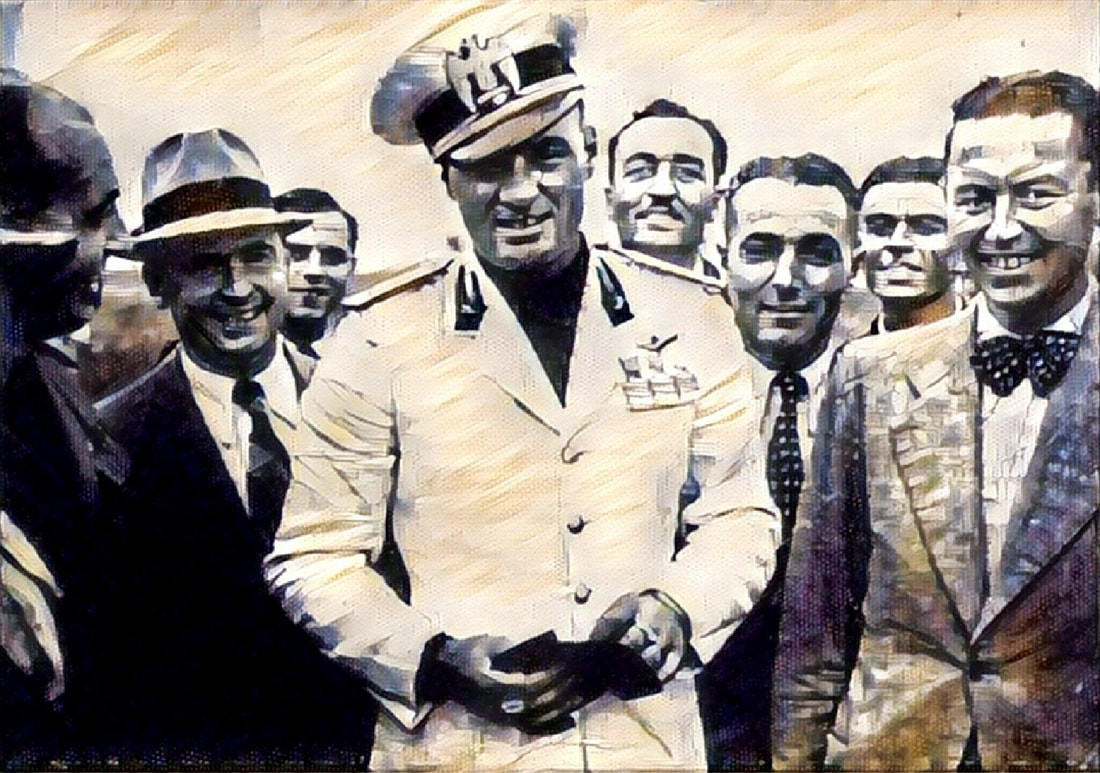
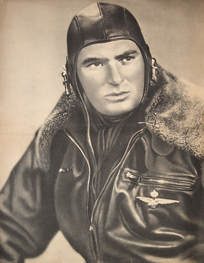
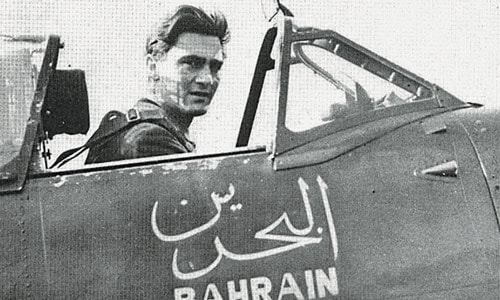
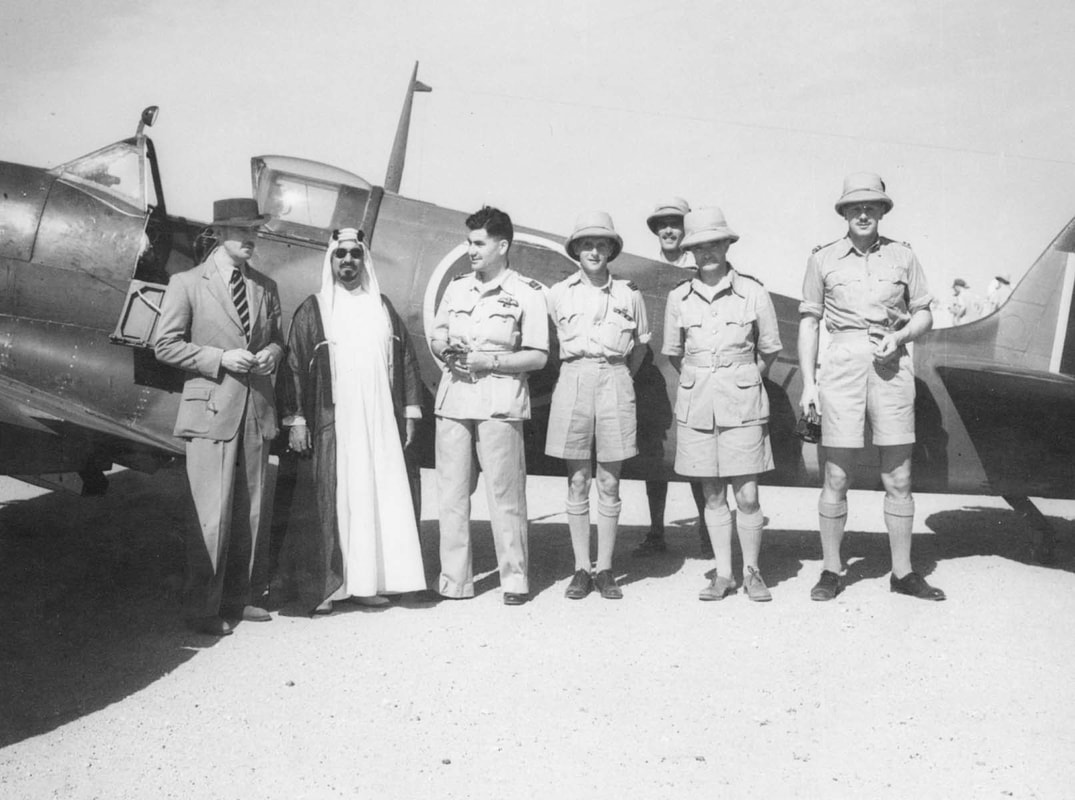
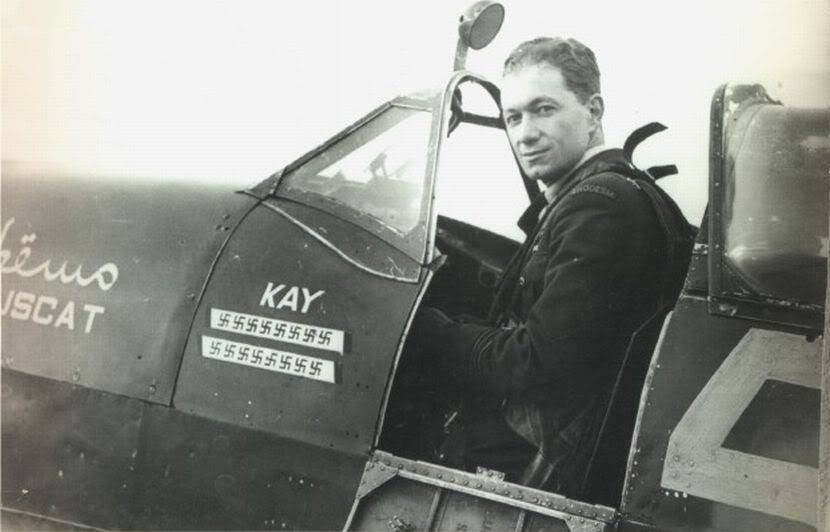
 RSS Feed
RSS Feed